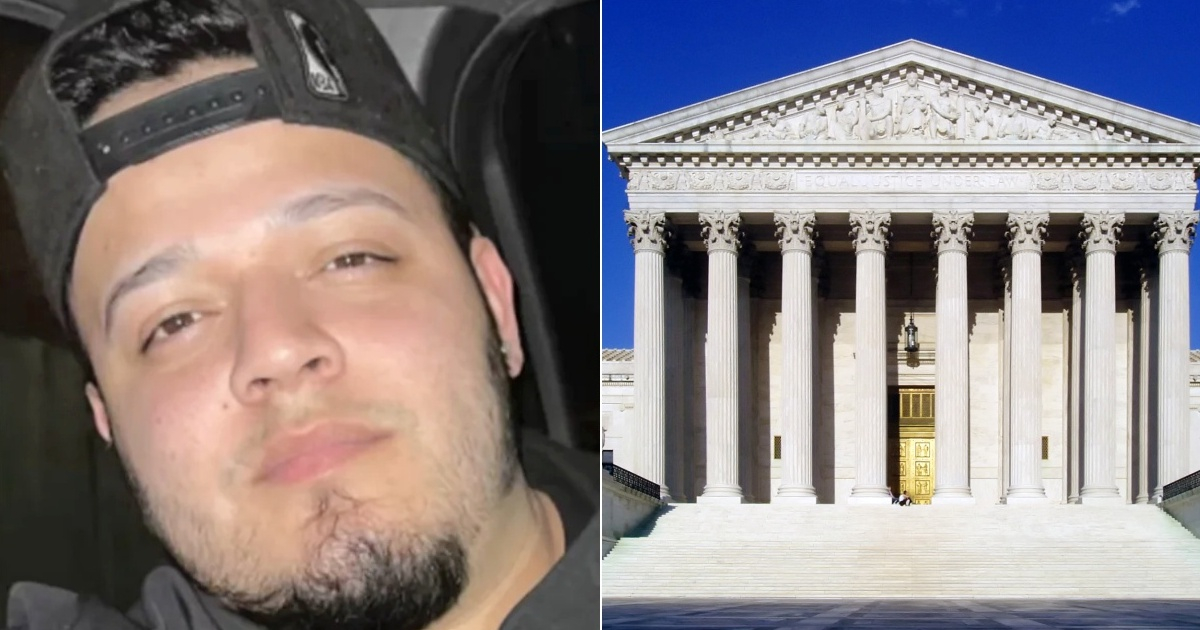The United States Supreme Court has issued a temporary halt on the return of Kilmar Ábrego García, a Salvadoran immigrant mistakenly deported and subsequently placed in one of El Salvador's most notorious prisons. This decision follows an emergency appeal by the Department of Justice after federal district judge Paula Xinis ordered the federal government to "facilitate and effect" his return before midnight on Monday.
The suspension order was signed by Chief Justice John Roberts, who has also requested additional arguments from both parties to be submitted by 5:00 p.m. on Tuesday, Washington time. This legal maneuver extends the deadline set by the lower court, currently preventing the deportation of the migrant from being carried out.
An Administrative Blunder that Sent an Innocent Man to a Maximum-Security Prison
Ábrego García, 29, was residing in Prince George's County, Maryland. He was married to a U.S. citizen, possessed a work permit issued by the Department of Homeland Security, and was employed as an apprentice sheet metal worker. According to his legal representatives, he had no criminal record.
Nonetheless, on March 12, he was apprehended by Immigration and Customs Enforcement (ICE) agents due to a purported change in his immigration status. Despite an immigration judge's 2019 directive prohibiting his deportation—citing potential gang-related retaliation threats in El Salvador—he was placed on one of three flights on March 15, which transported over 200 Venezuelans and dozens of Salvadorans back to the Central American nation. Upon arrival, he was confined in the Center for Confinement of Terrorism (CECOT), a maximum-security facility notorious for housing gang members. During a court hearing, the government acknowledged the mistake.
A Justice Department attorney conceded that Ábrego García should not have been deported, leading to Justice Secretary Pam Bondi suspending attorney Erez Reuveni, who was involved in the case.
The Government's Defense: Executive Authority and Foreign Policy
The U.S. government has asserted that Judge Xinis overstepped her boundaries. In their appeal, they argued that the Constitution grants the president—not federal district courts—the authority to guide foreign policy and safeguard the nation against threats, including the deportation of suspected terrorists.
Solicitor General D. John Sauer was unequivocal in labeling the judicial order "manifestly unlawful," describing it as part of "a deluge of illegal court orders" that hindered President Donald Trump's immigration agenda. In this context, the government contended that since Ábrego García was no longer in U.S. custody, the Executive could not be compelled to organize his return.
Court Response: Illegal Deportation and Rights Violations
However, both Judge Xinis and the Fourth Circuit Court of Appeals in Richmond, Virginia, hold a different view. To Xinis, the deportation was "wholly illegal," as there is no credible evidence linking Ábrego García to the MS-13 gang, as claimed by the White House.
Judge J. Harvie Wilkinson, in unanimously supporting the denial to stay the return order, wrote, "There is no doubt the government made a mistake here." The migrant's attorneys warned that this case could set a dangerous precedent if the Executive is allowed to disregard court rulings.
"The executive branch cannot seize individuals off the streets, place them in foreign prisons in violation of court orders, and then invoke separation of powers to shield its unlawful actions from judicial scrutiny," they argued.
This case is not isolated. Concurrently, the Trump Administration has petitioned the Supreme Court for permission to resume deportations of Venezuelan immigrants allegedly linked to gangs, also bound for CECOT. To justify this measure, they invoke an 18th-century law used during wartime.
The ongoing insistence on using this Salvadoran prison as a destination for alleged gang members, without trial or prior verification, intensifies the tension between judicial decisions and the Executive's immigration policy.
Key Legal and Immigration Questions
What led to Kilmar Ábrego García's wrongful deportation?
An administrative error by ICE resulted in Ábrego García's wrongful deportation, despite a court order prohibiting his return to El Salvador due to potential gang retaliation risks.
Why did the U.S. Supreme Court intervene in this case?
The Supreme Court intervened following an emergency appeal by the Department of Justice, challenging a lower court's order for Ábrego García's return to the U.S., arguing executive authority in immigration matters.
What are the implications of this case for U.S. immigration policy?
This case could set a precedent regarding the balance of power between the judiciary and the executive in immigration matters and highlights the potential consequences of deportation errors.
